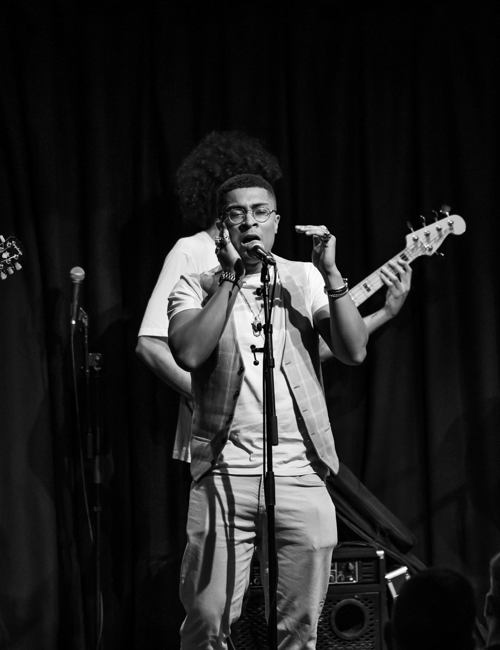
Mini Lara
Music has always been a huge part of my life, since I first started learning the piano at the age of four to me now performing in my university’s orchestras at the age of twenty. I have a pretty awful singing voice and no talent for playing a stringed instrument, so singing and cello lessons as a child didn’t last long. I didn’t know which instrument I wanted to try next, but when my primary school got a new oboe teacher, my mum heard her play and encouraged me to try it. It’s been my main instrument ever since, along with piano – it gave me the perfect excuse to skip those dreaded P.E. lessons.
My first orchestral experience was back in Salisbury, in my primary school’s orchestra. One job of the principal oboist is to tune the entire orchestra. I was terrified on my first day – when the conductor asked me to tune the rest of the orchestra, I went bright red and squealed as I let out an awfully shriek A. Our conductor chuckled and told me that from then on I would tune the orchestra until I got used to it.
Salisbury is a great place for young musicians, holding annual competitions for kids at different standards as well as multiple inter-school competitions. I even played in Salisbury Cathedral during my time at secondary school and sixth form; the acoustics are incredible in there. There are a lot of opportunities outside of school too. As well as playing with the city’s Youth Orchestra, I played for Winterbourne Opera’s production of Dido and Aeneas after bumping into their director in a music shop.
The music scene in Nottingham is very different from home. As Salisbury doesn’t have a big university, there’s a lot more for younger students than there is for older, whereas it’s quite mixed here. I’m a student at University of Nottingham, and I’ve been able to see quite a few professional ensembles when the university holds concerts in the Djanogly Recital Hall, including Ensemble 360 and the Brentano String Quartet.
I play for the university’s Philharmonic Orchestra, Wind Orchestra and Sinfonia as well as in the odd small ensemble and as a soloist. I’m principal oboe in all three which gives me quite a lot of responsibility, especially at times when the part is exposed, but the challenging aspects keep things interesting. I was especially nervous when I first started in these ensembles as all the instrumentalists are at a high standard, and the conductors expect a certain level of professionalism, but over time I’ve become quite comfortable with my place within the orchestras.
The small ensemble that I was involved with was a trio – me, my friend Ella, who plays the French horn, and our piano accompanist. We had roughly two months to prepare for a twenty-minute recital, for a course module. For our repertoire, we chose the first movement of Reinecke’s Trio for Piano, Oboe and Horn in A minor, Jevtic’s Con Amore e Fuoco for Piano, Oboe and Horn and an original composition written for us by Elizabeth Kelly, the university’s head of composition. This piece, Unlikely Romance, is a two-minute duet for oboe and horn.
We both really enjoyed participating in this ensemble. My only experience with small ensembles in the past was being in a wind quintet in secondary school, and it’s vastly different to performing as a soloist. I get insanely nervous when performing as a soloist, as it’s just me and the accompanist on stage with people staring at you. Somehow, with just one more person on stage with me, I was a lot less nervous and was able to just enjoy our performance.
The Sinfonia and Wind Orchestra are student-run and involve weekly two-and-a-half-hour rehearsals, with one concert each term. The Philharmonia is slightly different as it is run by Lakeside, just like the university choir. We tend to have two concerts a term, one joint with the choir, one without. In the weeks leading up to the concerts, we have weekend rehearsals – three hours on Fridays and either three or six hours on Saturdays and Sundays.
Our conductor, Jonathon Tilbrook is the Head of Postgraduate Studies at the Trinity conservatoire and travels up from London for rehearsals. One of the reasons that the philharmonic is my favorite is because the music tends to be quite challenging. We have performed a wide range of music, from Stravinsky’s Danses Concertantes and Vaughan William’s Sea Symphony to, more recently, Bach’s Magnificat and Bruckner’s 4th Symphony.
One issue that arises in most university orchestras is a lack of instruments that seem to be less popular. This tends to include much of the brass section (particularly trumpets, trombones and French horns), and parts of the woodwind section (most commonly oboes and bassoons). Nottingham University also suffers from this problem, regularly having to get outside players to come in and help out for concerts.
A difficulty we had quite recently was when we played Bach’s Magnificat, a piece written for the oboe d’amore (a member of the oboe family which was often used in Baroque music). Not only was it difficult to track down a second oboist, but we also had to make the decision to play the part on oboes, as it is notoriously difficult to track down an oboe d’amore, let alone two.
Music is a craft that is widely respected and one that stays with you for your entire life. While I’m considering film composition as a career, there’s a thrill that you can’t help but feel when you perform in a concert in front of hundreds of people. Being a part of an orchestra teaches you so many skills that you can use in life – understanding that a lack of individual effort can hinder the entire ensemble, respecting your peers, and working as part of a group.
Upcoming concerts:
We have a favour to ask
LeftLion is Nottingham’s meeting point for information about what’s going on in our city, from the established organisations to the grassroots. We want to keep what we do free to all to access, but increasingly we are relying on revenue from our readers to continue. Can you spare a few quid each month to support us?





